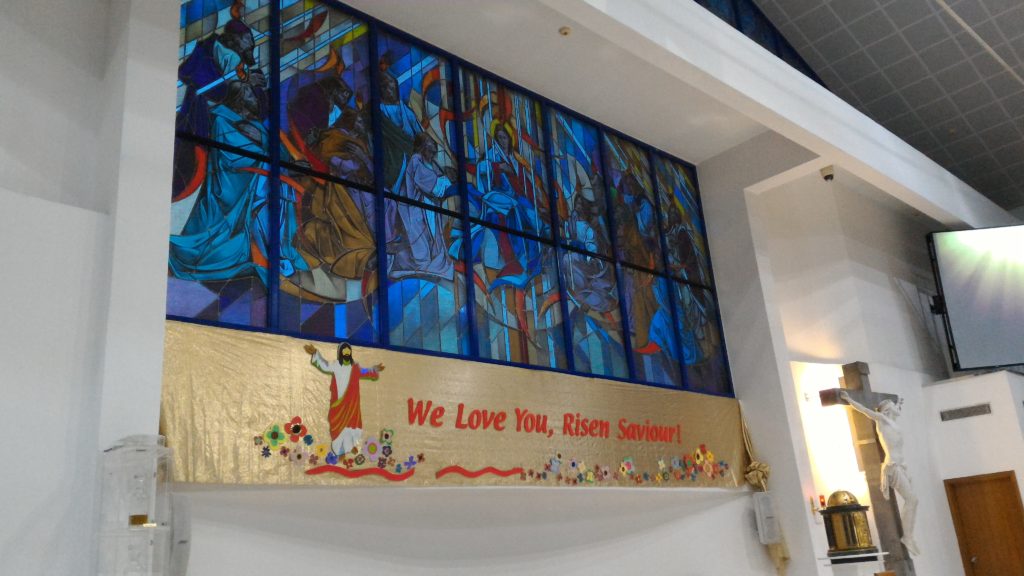Easter Thursday
Acts 3:11-26 | Psalm 8:2,5-9 | Luke 24:35-48
and it is the name of Jesus which, through our faith in it, has brought back the strength of this man whom you see here and who is well known to you. It is faith in that name that has restored this man to health, as you can all see. (Acts 3:16)
In the name of Jesus, we give thanks to our Creator.
In the name of Jesus, we bear witness to His boundless love.
In the name of Jesus, we perform works of mercy for our less fortunate brethren, regardless of race, language or religion.
In the name of Jesus, we live lives worthy of our calling as children of God. (Ephesians 4:1)
We do all this not by our own name, nor by our own effort. If we relied solely on our strength and will, we will inevitably stumble against the implacable foes of sin and temptation, anger and pride, sloth and greed.
But when we work our deeds of love and mercy in the name of Jesus, we receive His blessing and strength, to do what is pleasing to Him, to hold fast against those who would see us fall, and to encourage others to stand with us as a bulwark against the gathering darkness. As Psalm 115 reminds us:
Non nobis, Domine, non nobis, sed nomini tuo da gloriam.
Not to us, Lord, not to us, but to Your Name be the glory.
In the name of Jesus, O Father, Thy kingdom come.
Amen.




